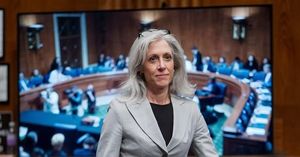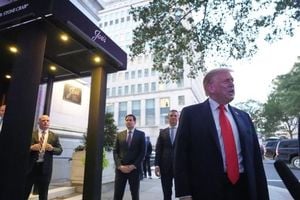Tesla has entered a strategic partnership with Chinese technology giant Baidu, aiming to improve the performance of its Advanced Driver Assistance Systems (ADAS) and Full Self-Driving (FSD) technology. This collaboration, reported by Reuters, emerges after Tesla faced customer criticisms due to recent updates to its self-driving software.
Sources familiar with the situation indicate Baidu dispatched a team of engineers from its mapping department to Tesla's office in Beijing over the past few weeks. Their mission is to integrate Baidu's navigation data, including key information like road signage and mileage, with Tesla's FSD version 13. This integration seeks to refine the performance of the FSD software, catering to the intricacies of Chinese roads.
The collaboration's key objective is clear: "The goal is to improve the performance of version 13 of the FSD program in China," the sources noted. This move aims to enrich the software's data pool, ensuring it provides more accurate and up-to-date information, which is particularly significant as Tesla navigates the regulatory and ethical terrains of operating within China.
Despite its ambitious plans for autonomous driving, Tesla has faced significant hurdles due to stringent data regulations imposed by Chinese authorities and similar restrictions from Washington. These limitations have complicated the company's efforts to fully deploy its self-driving capabilities, especially since Tesla cannot leverage data from its approximately 2 million electric vehicles within China for system training.
Without access to these data points, Tesla falls behind local competitors such as BYD and Xpeng, which not only offer more affordable vehicles but also do not impose extra subscription fees for similar autonomous driving programs. This competitive pressure highlights the urgency for Tesla to refine its technology and improve its market stance.
While Baidu continues to advance its autonomous vehicle initiatives, the partnership with Tesla may yield mutual benefits. Baidu is behind other market players like DeepSeek and ByteDance, making this collaboration potentially pivotal for the tech firm as it seeks to catch up.
Notably, the timing of this partnership is significant. It follows the recent rollout of Tesla's much-anticipated software update, which aimed to introduce urban navigation features. Yet, the update did not meet the high expectations set forth by CEO Elon Musk, who had promised the full rollout of FSD functionality within China. Many customers expressed their disappointment, emphasizing the need for reliability and advanced capabilities of Tesla's self-driving features.
The challenges of providing superior autonomous driving experiences are more pronounced when considering the diverse driving conditions and regulatory environments across regions. While Tesla's FSD technology does not require pinpoint accurate map data within the United States—existing local training can help optimize performance—this is not the case for China, where Tesla faces tighter scrutiny over data issues.
Baidu's engineers' contributions are poised to address these challenges, enhancing Tesla's ability to navigate compliance hurdles and adapt to local market demands. The engineers will focus on ensuring FSD can leverage Baidu's comprehensive mapping resources to facilitate more effective decision-making for Tesla vehicles.
Investors might also view this partnership positively, as Baidu's stock rose by about 2% following the announcement, contrasting with Tesla's slight decline of around 1% after experiencing market fluctuations recently. Such market reactions often reflect the perceived value and future potential of strategic partnerships like this.
Overall, Elon Musk's Tesla seeks to solidify its foothold amid increasing competition and regulatory scrutiny within China. By collaborating with Baidu, Tesla hopes to advance its autonomous driving efforts and address the limitations its FSD technology faces, thereby aligning with local expectations and enhancing its competitive edge.
This partnership not only signifies Tesla's commitment to enhancing its technology but also reflects the broader dynamics of automotive innovation where collaboration and adaptation to regional factors are increasingly becoming the norm. The industry is watching closely to see how these developments will influence Tesla's market performance and the evolution of autonomous driving standards globally.



